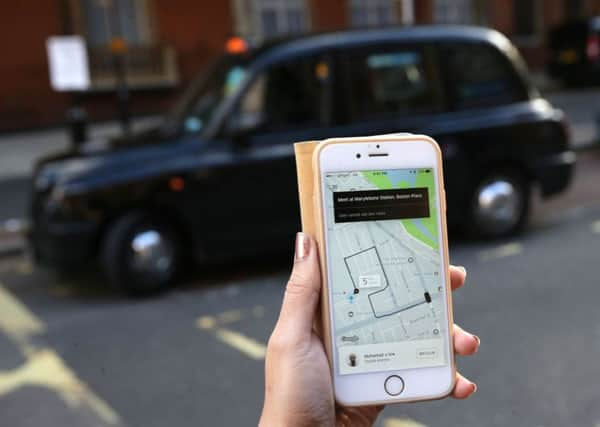Jim Duffy: A look at Uber's rarely publicised human side
This article contains affiliate links. We may earn a small commission on items purchased through this article, but that does not affect our editorial judgement.


Meet Brandi… she was my Uber driver from Las Vegas to Lake Mead this week as I used the taxi app to get me from downtown to the country. Brandi picked me up and she shared some insight into why working for Uber was just great.
The drive from Las Vegas to Lake Mead is about 28 minutes. It cost me $29 and a $2 tip for Brandi.
• READ MORE: Technology news
Advertisement
Hide AdAdvertisement
Hide AdShe told me she had worked for Uber for three months now and just loved it. She referred to working for Uber as Ubering. As we left Sin City, I asked her if working for Uber was a decent job. Did the company that polarises so many in London have a heart or was it all just about pure disruption and to hell with anyone that got in its way? Quite the contrary, as Brandi began to paint a picture of a company that cared about its drivers and indeed communicated with them to make sure they were okay and in good health.
Uber, she said, made her feel that she was part of something even though she worked for herself. She did not feel that it was a “big brother”- type company that was aloof from those it employed or served.
She could drop in to see Uber folks any time she wanted or call them at any time for advice or counselling.
When she went on holiday, Uber would check in with her to make she was okay and having a good time.
I could hardly believe what I was hearing to be honest as my perception of Uber was not computing with this at all.
Uber for me was a monster that was determined to have world domination at any cost. It was run by top expensive law firms who would railroad any country, city or state to make sure it landed there and immediately took a foothold. Brandi did not agree.
Uber was a breath of fresh air and allowed people like her to work the hours she wanted and even offered her discounts as benefits the more she drove and the better her passengers rated her.
When she decided that she would call it a day at the end of a shift, she would let them know and they would Uber her home via rides that gently directed her to where she lived.
Advertisement
Hide AdAdvertisement
Hide AdHow clever is that! So, why have I not heard such human stories before?
I use Uber almost weekly, whether it be in Edinburgh, London and of course here in the USA. It really is convenient and the app works really well. I like that I can rate my driver and that she can rate me.
But, there is always something lurking in the back of my mind that feels a bit sinister. Is Uber simply disrupting because it has the funds in place to do so and like most American tech firms is 100 per cent motivated by massive scale and profit?
Or is it truly creating a better service that addresses a much-needed painpoint that needed fixed?
Yes, I remember all the times I arrived at Euston Station and went downstairs to get a black cab. I felt like an underdog when I asked the drivers if they would accept a credit card. There was always a moan or an attitude. And I don’t get this when I jump into my Uber cab. The painpoint disappears. It genuinely feels different.
So, while Uber attempts to re-define itself in London, where the old boys’ network of black cabs has triumphed, albeit I do accept the safety issues raised against Uber, the question is: why did Uber as a company not show its more human side before now?
Is it that it feels it has to be aggressive all the time as it lives in the world of technology disruption?
Advertisement
Hide AdAdvertisement
Hide AdBrandi gave me a different insight into what it means to work with Uber. An insight that the 30,000 or so Uber drivers in London may need to shout about if this app is to exist in the long term.
• Jim Duffy is co-founder of The Moonshot Academy and author of Create Special